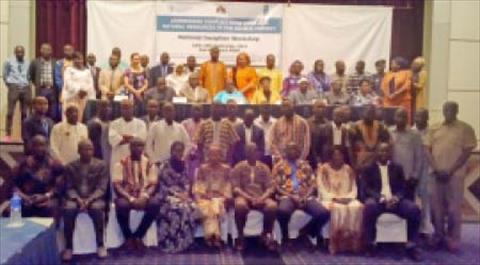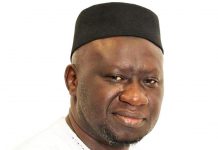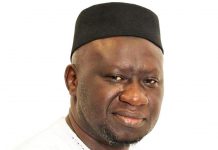Musa S. Drammeh, minister of Lands, Regional Government and Religious Affairs has said that the activities of Real Estate Companies are drivers of conflict over lands in this country, adding that as a result of their activities, every piece of land particularly in the Greater Banjul Area has increased in economic value.
Mr. Drammeh made these remarks Wednesday at a local hotel in Kololi during the launching of: Addressing Conflicts over Land and Natural Resources in The Gambia – a project funded by the UN Peace building Fund and implemented by FAO and UNDP in partnership with Ministry of Lands, Regional Government and Religious Affairs.
According to him, an information system shall be developed to help track land disputes, and establish a data center on all land related disputes.
He added that a legislation shall also be developed to regulate the activities of real estate sector thus minimizing their adverse effect on the spatial landscape of The Gambia but also avail the state the opportunity to regulate and ensure that real estate business contributes to the economic growth of this country.
He remarked that there is the need to develop robust ‘development control’ mechanism and strategies, to make sure development is in conformity with land use plan.
He stated that his ministry is currently faced with serious technical and financial challenges in the administration and management of our land resources.
Mr. Drammeh said climate change has also put pressure on the amount of arable land for agricultural production and significantly shrunk land available for residential use especially in the Greater Banjul Area.
Similarly, he further said inadequate legal frameworks and weak enforcement of existing land laws has led to unplanned and haphazard development in the Greater Banjul Area.
“As a result of the aforementioned, there is need to urgently arrest the escalation of LNR-related tensions, many of which have festered for a long time,” he highlighted, but, however, said due to the inadequate budgetary allocation especially for development related projects, there has always been a gap in the execution of their core mandate as a ministry and government.
He said developing a land policy which has been absent in the land governance of this country will go a long way in creating synergy in the administration of land and significantly reduce institutional conflict and overlap in the administration and use of land as well as help to recognise and protect all legitimate tenure rights.
This, he said, will also strengthen the legal framework for land governance and conflict resolution through the review of legislative frameworks, support for advocacy and enactment of disputes resolution mechanisms.
Meanwhile, the objective of the 1.4M USD project is to strengthen legal frameworks for land and natural resources related conflict resolution and governance, enhance mechanisms for conflict prevention in communities where LNR conflict-related violence has already occurred and support actions for peace building.
The conflict and development analysis study conducted in The Gambia in 2018 and updated in June 2019 indicates that a key driver of conflict and instability in The Gambia lies in the area of the land governance, land disputes and their resolution methods. “With rapid population growth, land has become a valuable commodity, sought after by many. In the last two and half years we have seen an escalation in tensions over land disputes,” according to the study.






